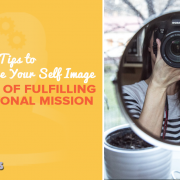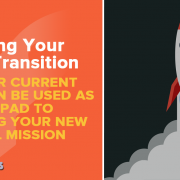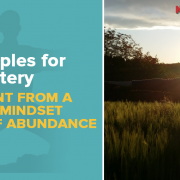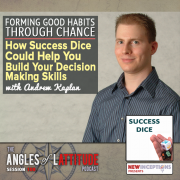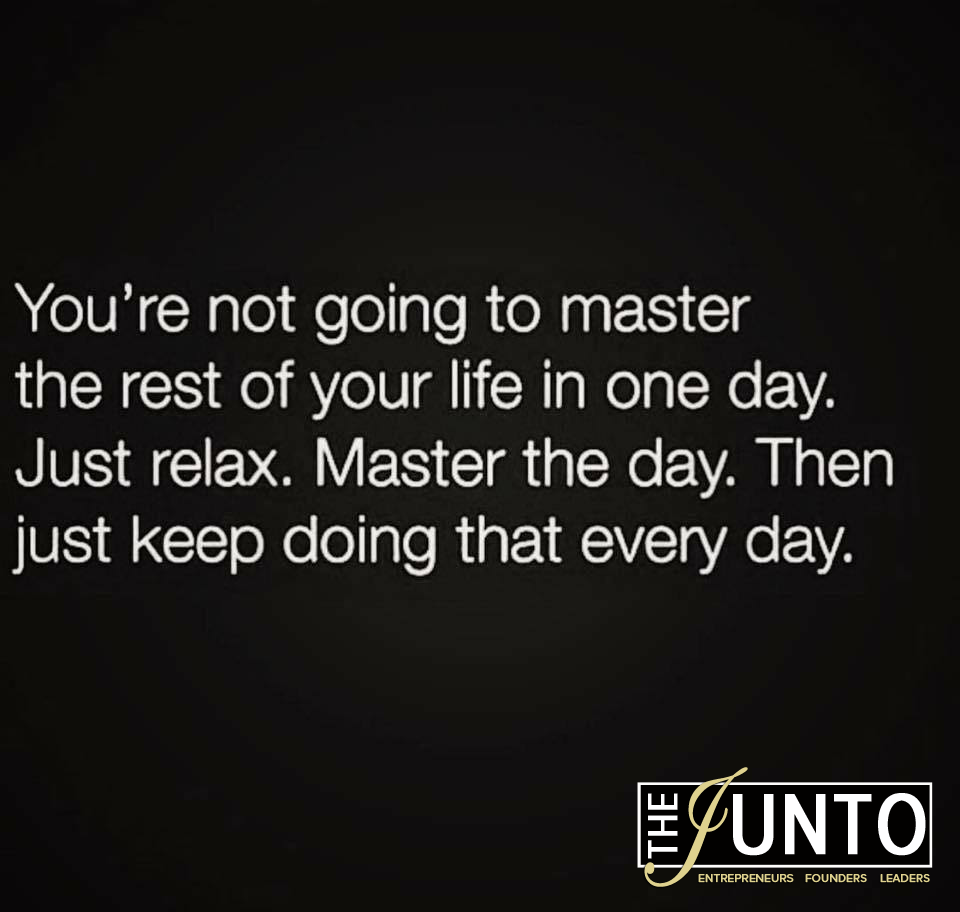Eleven Quick Tips to Improve Your Self Image: A Big Part of Fulfilling Your Personal Mission
As I’m approaching the release of my newest resource on finding a Personal Mission, I thought a good lead into the launch should involve some related content. Last week’s post was an example. Here’s another one.
This piece, originally posted on October 26th, 2010, is probably one of my favorite early posts.
I used to struggle with my self image a lot. A good part of it was because I didn’t have my own mission yet. I was a fish trying to compare myself to monkeys when it came to climbing trees. Perhaps just like you, I was told that climbing trees was the best career out there. Except it wasn’t really trees – it was “finding a job”.
It just wasn’t for me – and I eventually figured that out.
Even if you haven’t realized your own mission yet, you can start building your self image. While having your own mission does help with making these tips more practical, sometimes it helps to make the transition one small piece at a time. When you do have a high self image, you’ll have the required confidence to live the life you want. Without the confidence, there’s a good chance you won’t commit!
Getting out of Your Rut
In today’s world, society has forced many of us to be what we’re not. Making us feel like we’re somehow inadequate. For most people, this is considered the norm.
But the result is that it might leave us feeling stuck in a rut.
If you find yourself in this rut and not feeling like you actually appreciate yourself as much as you think you should, then there’s a good chance you have a low self image. As you’ve probably heard, having a good self image can help give someone more confidence. So, increasing your self image can help you with your personal life but it can even help with your professional life.
In the past, as I have worked with others in their self development path, one of the biggest problems I see most frequently are those that deal with self acceptance and self image. As I have personally struggled with my identity and these problems myself, I had plenty of time to figure out what worked and what didn’t… and several times over for others.
1. Clothes Do Make the Man (and Woman)
Yes, it’s an old cliche’, but that doesn’t make it any less true. A few years back, I remember a time when I didn’t really have any more than one oversized suit. Now I have several. Why? Because when we dress confidently, we feel confident. Try this experiment: for one week, dress like the person you want to be, NOT the person you think you are. This one is a simple change and can have the potential to dramatically improve your self image.
2. Keep Your Environment Tidy.
Keeping your house and car clean helps raise your self image. Most people like being in clean areas more than cluttered ones. Those same people tend to get depressed when they’re in a cluttered environment. So instead of submitting yourself to a environment that could prove to be depressing, put some effort into keeping your environment like that of a person you believe to have a higher self image would have. That doesn’t have to be spotless — maybe just organized and practical.
3. Stop Trying so Damn Hard.
Improving your self image should not be about struggling. Give up trying to be a perfectionist, and give yourself permission to be a human being who will naturally make mistakes sometimes. As I mentioned in my last post, detailitis is a disease of success. If you’re constantly searching for perfection, you’re constantly failing to achieve just that. So instead, just strive for excellence. A sure-fire way to feel inferior is to set the bar too high in every area of your life. Cut yourself some slack — you deserve it.
4. Focus Your Attention Outward.
One of my favorite quotes that I quote Zig Ziglar for saying is this: “Those who help enough other people get what they want, automatically get what they want in return.” Lack of confidence often causes people to focus an inordinate amount of attention inward, on the “self.” Make it a point to focus more attention on others than you do on yourself. Remember, confident people focus outward — insecure people focus inward.
5. Avoid Energy Drainers.
All of us know someone who seems to “suck the energy” out of a room just by entering. These negative people are all around us. They might even be your parents. Give yourself permission to minimize contact with these people. Don’t hate them or judge them in any way. Just recognize that they do not improve the quality of your life, and minimize your connection with them.
6. Take a Chance.
Try something new and different that you may have been apprehensive about in the past. Enroll in an adult education class, or join a book club, gym, bowling league or other social pastime. Anything that will get you out of your shell. The change will do you good, and your self image will improve!
7. Be a Giver.
The Golden Rule states: “Do onto others as you would have them do onto you.” With that in mind, start giving what you want to receive in life. If you want people to treat you that you’re a confident and human person, Make other people feel as confident and human as you can. When you build up others, you are sure to get back the same thing. Call it karma or what ever you like – it always works!
8. Practice Forgiving Others.
Many people are very hard on themselves because, deep down, there’s something in their past that they would rather forget. If you’re clinging to some failure or transgression from the past, you should realize that you are doing so. Then forgive yourself completely for what it was. Likewise, if someone else did something that you’ve been holding a grudge against. Forgive them and don’t hold that grudge. It’s belittling of people to hold grudges.
9. Learn how to talk to Yourself.
In fact, this is the topic of one of my favorite books. “What to Say When You Talk to Yourself” Some people repeat affirmations such as “I have a great self image,” which is fine, but you can improve your affirmation results by using leading questions such as, “why am I so confident?” When you ask yourself a question like this, your subconscious mind operates in a very simple manner. It will immediately go to work looking for the answer, and it will report back to you all of the ways you already are confident. This, in turn, will boost your self image.
10. “Model” Other Confident People.
One way to improve your self image is to model the behavior of people whom you consider to be supremely confident. If you can befriend a very confident person, that’s great. But if not, just find an actor or other celebrity who is confidence personified, and study their behavior. Do this several times a week, and some of their confident mannerisms are bound to rub off on you.
11. Practice Being Thankful.
This one might seem a little weird and/or tedious. However, a grateful mind is a peaceful mind, and a peaceful mind radiates confidence. While you’re building your self image, practice making a daily gratitude list. Particularly focus on different aspects of yourself that you appreciate. Maybe you are a great swimmer, or good at math, or really strong, or a good dancer, or have an unusual sense of humor, or are good at design, or a great singer, or a really good friend, or any number of other positive attributes. Look for what is great about you, and then be grateful you have those qualities. Appreciating your good qualities will improve self-confidence, and help you develop the kind of positive self image that is crucial to success in life.
Action Steps
So, again, if you haven’t figured out what your mission is, that’s not a problem. It can be hard to go after your own thing if you don’t have the confidence in yourself to do so yet.
That said, even if you have your mission figured out but you’re not quite sure how to pursue it yet – don’t hesitate to start working these habits into your life. There’s a good chance you’ve already worked on a few of them, but utilizing all of them might possibly help boost your results.

